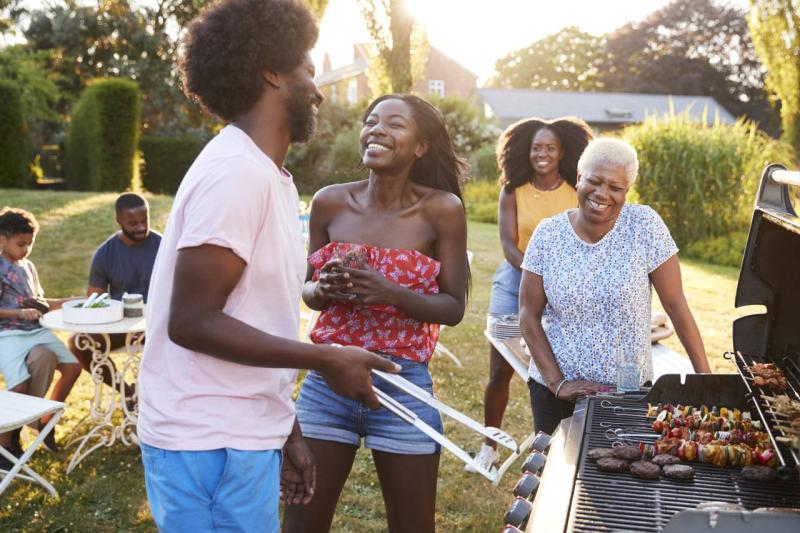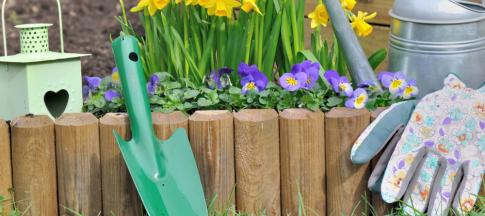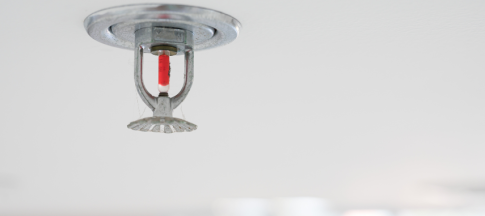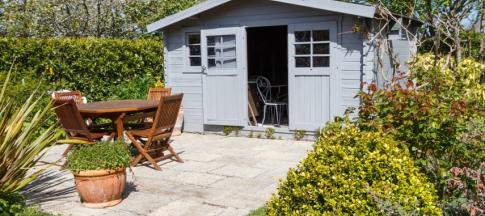
Garden BBQs are a UK tradition, and bonfires and firepits can extend the time spent outside due to the not-so-reliable British weather.
However, fire is dangerous and can easily lead to tragedies without proper care and safety.
Read on for our fire safety tips to keep you and your loved ones safe.
BBQ and fire pit safety
BBQs and fire pits encourage us to make the most of the great weather, but you need to extinguish them properly to avoid a fire. Leaving them to sizzle out isn’t a good idea.
Here are some general safety rules for gas and charcoal BBQs from the Fire Service:
- Make sure your BBQ works and is on a flat surface away from any shed, trees and bushes
- Never leave it unattended
- Keep a bucket of water or sand nearby for emergencies
- Keep children and pets away from the area
- Only move BBQs once cool
Gas BBQ cylinder safety tips
- Check the tap is off before changing the gas cylinder
- Only change cylinders outdoors or in a well-ventilated area
- If you suspect a leak in the cylinder or pipework, brush soapy water around the joints and look for bubbles – tighten to fix, but don’t over tighten
- After cooking, turn off the gas cylinder before switching off the controls – this uses up residual gas in the pipes
Charcoal barbecues safety tips
- Only cover about two inches of the base of the BBQ with charcoal
- Never use petrol, only proper firelighters or start fuel on cold coal
- Never put hot ashes straight into the bin – they could melt the plastic and cause a fire
How to cool a charcoal barbecue
- Stop any air getting to the coals by popping the lid on and closing the vents
- Gently spray water over the coals and ashes before securing the lid and closing the vents - the water spray will speed up the cooling process
- Pour a bucket of water over the hot coals and stir to extinguish
Can I have a BBQ in my garden?
Yes, if it’s a private garden and you follow safety rules carefully, you won’t have any issues.
Keep an eye on the smoke levels; consistently producing lots of smoke is a nuisance, and you can run into problems with your council.
Any nuisance caused by your bonfire can lead to an ‘abatement notice’ from your council. If you don’t follow the rules, you may get a £5,000 fine.
Bonfire safety rules
Here are some safety measures to keep you and your loved ones safe when having a garden bonfire.
Bonfire laws in the UK
If you live near a road, you must make sure smoke doesn’t blow across and cause danger to traffic.
You also can’t burn household waste as it causes pollution and harms people’s health. We discuss ways to dispose of food waste further down.
If you’re having a bonfire in a public space like your local park or beach, then check your council’s rules.
Generally, if you’re safe and clean up your mess, they’re allowed. But you can be charged under the Criminal Damage Act 1971 if your fire threatens public or property safety.
Bonfire safety tips
To keep everyone safe, nominate one person responsible for lighting the fire, and make sure they’re wearing suitable, low-flammable clothing like wool.
Make sure that person knows how to deal with burning themselves or if their clothing catches fire.
Bonfire dos
You should:
- keep it far away from buildings, bushes and fences
- only add dry material to the bonfire to minimise the amount of smoke
- keep small children and animals away from the bonfire
Bonfire don’ts
You shouldn't:
- leave the fire unattended
- pour flammable liquid onto a bonfire
- burn aerosol cans, batteries, paint tins or furniture containing foam
- add household rubbish to your bonfire
Once finished, thoroughly extinguish the fire by covering it with soil or dousing it with water. Remember – a smouldering fire can light again.
What time can I have a fire in my garden?
There are no laws for this but you should follow common decency.
Most people expect to see a bonfire at dusk. It shouldn’t finish too late.
The light and smoke can prevent your neighbours from sleeping and is technically a nuisance.
When can I have a bonfire in my garden?
No law outlines when to light bonfires. However, avoid igniting them if the weather is hot and dry.
Lighting a bonfire in the summertime may count as endangering life which could land you in trouble with the local authorities. It also means you aren’t following bonfire safety rules.
Using weed burners
It’s not just barbecues and bonfires to be aware of when it comes to fire safety in your garden.
If your garden’s overrun with weeds, you may want to use a weed burner to clear them up. But there are a few safety tips to be aware of:
- Don’t use it in windy weather – as the wind could carry the fire further than you expect.
- Don’t use it when it’s been particularly dry for a long period – because the fire can spread a lot faster through dry vegetation.
- Make sure you store it safely – let it cool down fully before putting it away and don’t leave it near flammable materials.
Garden fire insurance claims rising
David Fowkes, Head of Household Underwriting at Admiral, said: “It’s not just barbecues and firepits gone wrong that have caused this spike in garden fire claims, but also the burning of garden waste or rubbish.”
“While this may be the tempting option to quickly dispose of things, it’s all too easy for the wrong items to end up on the fire which can cause plumes of acrid smoke or toxic chemicals being released, and even explosions.”
“It's best to hang on to your rubbish and garden waste until you can dispose of it properly."
Here are some alternatives to burning your garden waste:
- composting – remember, only compost green waste and fruit/veg as cooked food and dairy products can attract rats
- wormeries – try a worm composting bin to produce fertiliser and compost in no time. You can compost any cooked or uncooked food scraps
- hot composting – if you want to add cooked food waste to your garden waste, try a hot composting bin. They’re designed to heat up to a safe temperature for cooked food
Landlord and tenant agreements
If you’re a landlord, it’s worthwhile setting some boundaries when it comes to bonfires and garden fire safety.
Not only will it protect your property, but it’s better to set your expectations early so you can maintain a good relationship with your tenants and your neighbours.
If there’s not a specific clause in your tenancy agreement stating your tenants can’t have bonfires or fireworks, it’s still worth chatting with them to go over some of the safety tips we’ve outlined above.


